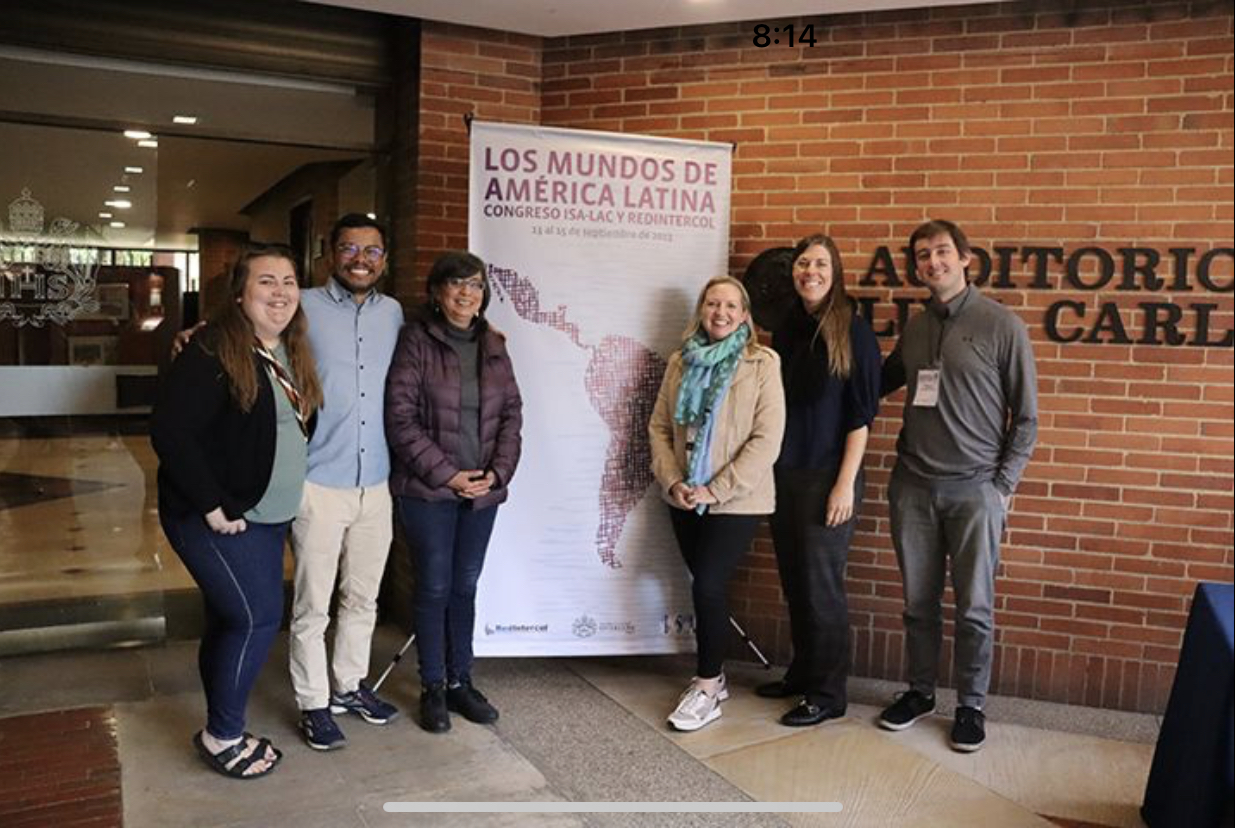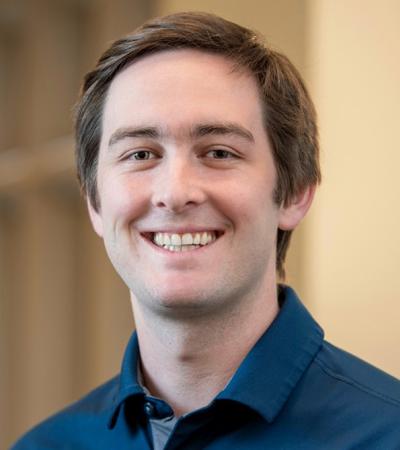International Studies Association, Latin American and Caribbean Region Conference; Universidad Javeriana, Bogotá, Colombia
Kellogg Institute Conference Travel Grants
Conference: International Studies Association, Latin American and Caribbean Region: "The Worlds of Latin America: Global Turbulences and Local Transformations" Conference; Universidad Javeriana, Bogotá, Colombia
September 13 – 15, 2023
Presentation: “Activating PDET Initiatives: Conditions for Post-Accord Investments”
REPORT:

This ISA-LAC conference–the first of its kind in Colombia–drew a wide audience of students, independent researchers, faculty, and civil society advocates concentrating on many topics ranging from foreign policy to peace studies and indigenous rights. Keynote speakers discussed the history of multilateralism within Latin America, indigenous epistemological challenges to Western academic discourse, and intercultural relationality within scholarship. I sat in on panels related to peacebuilding challenges in Colombia, the ongoing peace negotiations with the ELN, the legacy of the Truth Commission’s work, as well as the differential long-term impacts of violence in the country. Additionally, I met important researchers innovating in comparative politics and peacebuilding in Colombia and elsewhere, and participated as a discussant and a chair for two panels featuring cutting-edge scholarship in peace and conflict studies.
Substantively, the ISA-LAC conference expanded my research interests, gave me professional development experience, and opened the possibility of future collaborative research for my dissertation. First, the conference allowed me to engage with research areas that are tangential yet informative for my research agenda on rural development in Colombia. This was most apparent to me when I acted as a panel discussant for research related to the legacies of violence in Colombia. I synthesized five presentations from researchers in political science, sociology, and anthropology, and generated questions for each of them on their work. Their presentations conjured up questions related to environmental policy in Colombia, masculinity in contemporary peacebuilding culture, coordination dilemmas for rural mobilization, historical comparative analysis of rural development projects since the 1950s, and institutional analysis of international donor agencies. Drawing from my own studies in critical theory and comparative politics, I offered feedback to the authors while considering the various ways in which their research could contribute to my agenda or rural development under the peace accord in Colombia.
Second, as a panel discussant and presenter, I learned about the importance of conference spaces for presenting and receiving feedback on my research. As a presenter, I was given 15 minutes to summarize my paper on the conditions facilitating or hindering rural development initiatives under the Colombian peace accord, for which I designed a powerpoint presentation. While the presentation was not as well-attended as I had hoped, I still received useful positive feedback from other panelists and audience members, providing me with confidence in the direction of my research. The discussant of our panel, Prof. Jose Manuel Salamanca, considered that this research was relevant given the longevity of the development program and the utility it has for political aspirants in the rural areas as well. This type of insight from a leading scholar in Colombia was an important motivation for me at this stage of my research.
Thirdly, the conference helped me develop my network in Colombia. For example, after presenting my research at the panel on Colombia’s peace process, I made contact with important faculty members from Universidad Javeriana, including Maria Lucia Zapata Cancelado (chair of the Political Science department, and Peace Studies section representative from ISA) as well as Prof. Salamanca (who is also director of the Human Rights and Peacebuilding Institute there). They expressed interest in my research, and with a suggestion from the Kroc Institute’s Josefina Echavarria Alvarez, we discussed the possibility of an inter-institutional collaboration to analyze archival materials at the university related to rural development programs in Colombia. This exciting possibility to collaborate with local researchers would provide an unparalleled opportunity for me to gather evidence for my eventual dissertation.
The ISA-LAC conference provided a fruitful experience for developing my research and situating myself within a broader community of political science and peace studies academics from the Global South. It provided a platform for Latin American-centered scholarship not usually accessible at Notre Dame or elsewhere in the United States, allowing me to expand my research questions and intended audience. While I had reached out to members of my panels ahead of the conference, many were unable to attend, so I had fewer interactions and feedback than I was hoping to receive. Nonetheless, I gained important professional development experience and made personal connections that could prove to be crucial in the near future as I develop my research skills.






